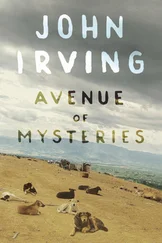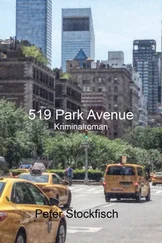Nine times out of ten, we did play soccer. Once the dishes were done we’d all walk over to Live Oak Park or to Berkeley campus, where we could always find a vacant field. My mother sat on the grass and watched as Scott and I teamed up against Dad and my little sister. Within a few minutes Janis would end up behind the goalposts we’d made with Siem’s leather sandals and sweatshirt, plucking flowers, while my barefoot father, laughing and sweating, had his work cut out for him with me and the ebullient Scott.
• • •
They did not resemble each other in the least, the light-blond Scotty with his fructose body and the athletic gypsy boy we had left behind in Culemborg. And yet, or maybe for that very reason, those soccer evenings always made me think of Wilbert. I could picture him back in Holland: angry and alone. He wanted to go to Berkeley with us, he said so himself. “You’re going to America?” he asked while we dug out a sewer pipe in Grift Park in Utrecht. “Me too then. Tell my father I’m going with you.” I promised to tell him, but when I saw Siem I kept it to myself.
It was the only time I saw Wilbert after the divorce, a few months before we moved to California, and shortly after the sober wedding of his father and my mother. Siem had already been living with us for a while, and what started out feeling weird — the upstairs neighbor who ate with us and stayed on, week after week — had meanwhile become normal, and fun too. (He was a new addition to the family, like Janis had once been a new addition. But what do you tape to the window when you get a new father? Surely not a cardboard stork.)
In fact, I had almost forgotten that Siem had a son who lived with Margriet in Culemborg — until Wilbert showed up on the doorstep one Friday afternoon. His little fist, rings on his fingers, grasped a plastic Edah supermarket bag containing a frayed toothbrush and a wadded-up sweater. He’d come to stay with his father. Unannounced. The first drawback was that Siem was out of town — which he hardly ever was, but now he was in Berlin or Munich or somewhere, working on his dissertation — so my mother and I awkwardly drank a soda with our guest, who cracked jokes, but also had a good look around the living room, and summed up in a matter-of-fact tone which objects we had stolen from his mother: the green cuckoo clock, the rattan chair he was sitting in, the two camel saddles he said his mother had bought herself in Egypt, which struck even me as far-fetched.
“How was your trip, Wilbert?” inquired my mother. “Fine, fine,” he answered, “my uncle brought me in the car,” and with the completion of the official portion of his visit, he and I got down to playing — come on, Joni, let’s go out and have some adventures, and as though he , not I , had been living in the Antonius Matthaeuslaan for the past two years he led me on a ramble through Utrecht neighborhoods I’d never seen before. We ran over apartment-house galleries in Overvecht, he made a small fire in an elevator that blazed alarmingly well, we followed a man pulling a roller suitcase for an hour to the end of the Blauwkapelseweg, where the man got into a car that Wilbert, tongue between his teeth, pelted with a wad of dirt. In a suburban shopping center I had to wait for him outside a tobacconist, and after running like mad after him for a kilometer he handed me three packs of chewing gum and a handful of lotto tickets.
That evening my mother brought Janis to Grandma and Grandpa and took us to the movies; she’d reserved tickets for Herbie , but Wilbert thought a talking Volkswagen was for babies, so instead we went to Grease , which Siem had spent the past six months saying I was too young for. He sat next to me smelling of fire and sweat, he breathed like a strange animal. You only saw boys like Wilbert at the carnival, they parked the bumper cars, steering nonchalantly with their butts resting on the side. “Don’t mention the movie,” my mother said afterward, which was easy, because before long I was up to my ears in things I knew instinctively were better kept quiet.
His black hair styled into a grease quiff with sugar water, Wilbert told us during the croquettes and fries that he often stood at the Culemborg bus stop with his gym bag, planning to visit, he missed Siem, but his mother wouldn’t let him, and his uncle had stashed the bag for him in a locker at the sport school. “Maybe it would be cool if I went to America with you, Aunt Tineke,” he said. We’d have to wait for his father my mother said, and when the doorbell rang Wilbert clamped his mayonnaise-covered fingers over his full lips in anticipation, but it wasn’t his father, it was two uniformed policemen. The party was over. The policemen established, with the aid of a form my mother had to sign, that Wilbert was Wilbert Sigerius, nine years old, reported missing by Menno Wijn that morning. They chatted a bit with my mother in the kitchen, and when they were done they took Wilbert away with them.
Later that evening, when Siem arrived home, travel-weary, he — and I, positioned within earshot — was treated to the full story. The police had traced Wilbert via a handicap vehicle stolen in Culemborg, one of those mini-cars that can only go 45 kph and was discovered with an empty tank in the Vaartse Rijn. A gas station attendant had spotted him in it on Friday afternoon putt-putting his way from Culemborg to Utrecht.
That Sunday night I lay stiff as a board in bed. My mother and new father were having their first argument; his voice was loud and carried far. In the weeks that followed, weeks marked by preparations for our great crossing, no one uttered a word about Wilbert. And once we lived here, in this new country, in this new house on Bonita Avenue, and everything about Holland seemed amazingly far away and long ago, we behaved as though that horrible boy had never existed. Certainly in retrospect, in America we enjoyed the best, happiest, and most carefree time the four of us ever had. By far.
But I had my own thoughts on the matter. And aside from Janis we probably all did. When I sat on my swing that Siem had hung on the leek-green veranda and thought back on the bottom half of the duplex on the Antonius Matthaeuslaan, with that weird, threatening, charged house upstairs, and what went on there, then I not only became miserable with happiness, or the other way around, but also a reverse reasoning took shape in my head: I began to believe that we hadn’t left Margriet and Wilbert and that creepy uncle of his behind in Holland, but that we had run away from them. We had to start anew. And we did that here, in this cozy little neighborhood, where Siem had a job at the university.
I also heard my parents fight in America now and then, our wooden house was a soundboard, and then I sprang out of bed and stood at the top of the stairs, my heart pounding. Sometimes I could make out that it had to do with Wilbert; Menno Wijn had phoned and their conversation would turn Siem gruff and surly for the next couple of days. After each angry outburst I was scared stiff that Wilbert would come over anyway, or, what’s worse, that Siem would have to return to Holland, that the four of us being a family just wasn’t meant to be, and that we’d all have to fly back there tomorrow and go back to living in that awful house on the Antonius Matthaeuslaan.
What could I do? Keep the secret . I made a solemn pledge. Now that I called Siem “Dad” and myself “Sigerius,” now that we had embarked on a new beginning in this faraway country, and I noticed that my mother could laugh again, no one would be allowed to find out the truth. We were a regular family. Tineke and Siem had made me together, and after that they made my sister. That’s how it was. Stick to the story.
Читать дальше












